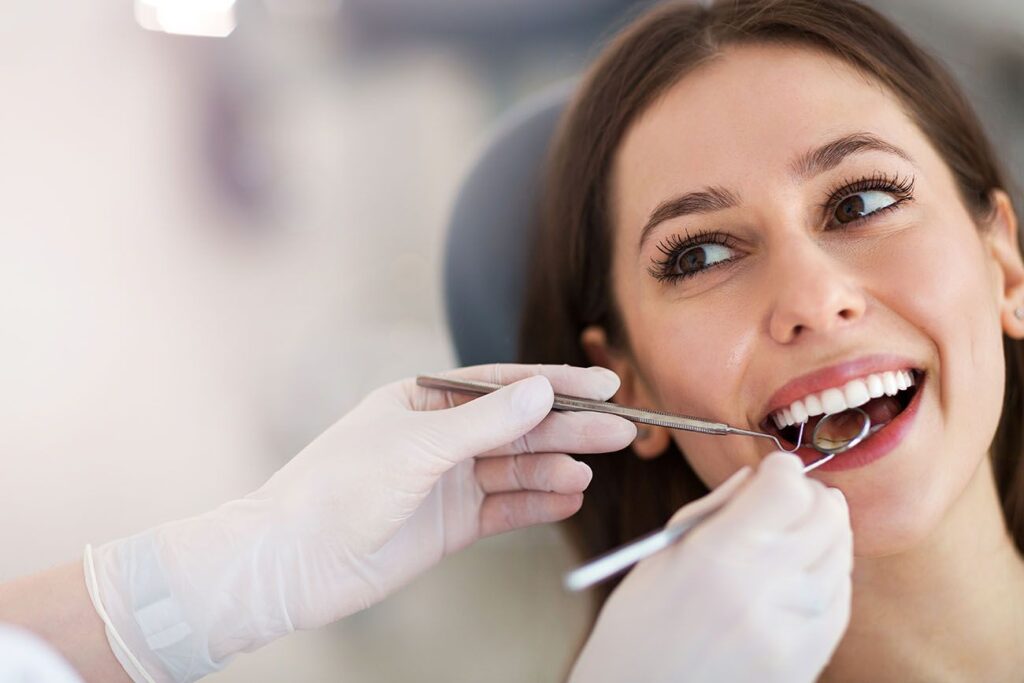Dental cleanings are essential for maintaining healthy teeth and gums. In fact, they are one of the cornerstones of good oral health. They help remove plaque, tartar, and stains, leaving our smiles fresh and bright. However, for some people, the aftermath of a dental cleaning can bring about an unexpected challenge: tooth sensitivity.


The Post-Cleaning Sensation
Have you ever experienced a sudden twinge of sensitivity after a dental cleaning? You’re not alone. Many people notice increased sensitivity to hot, cold, sweet, or even just air touching their teeth after a visit to the dentist. This sensitivity can range from mild discomfort to sharp, fleeting pain.
Causes of Post-Cleaning Sensitivity
Several factors contribute to tooth sensitivity after a dental cleaning. One common cause is the removal of plaque and tartar from the teeth and along the gum line. While this benefits oral health, it can temporarily expose the sensitive dentin beneath the enamel. However, this sensation should be temporary.
Irritation of the Gums
During a dental cleaning, your dentist or hygienist may also perform a thorough cleaning of your gums. This process can lead to minor irritation or inflammation. As a result, it can make the gums more sensitive. The roots of the teeth, which are not covered by enamel, can become particularly susceptible to discomfort.
Reactions to Cleaning Agents
Cleaning agents and polishing compounds during the cleaning process can also contribute to tooth sensitivity. Some people may have temporary reactions to these substances. This can lead to heightened sensitivity for a short period after the cleaning.
Tips for Managing Sensitivity
If you experience sensitivity after a dental cleaning, there are steps you can take to ease the discomfort:
Use Toothpaste for Sensitive Teeth
Switching to a toothpaste specifically designed for sensitive teeth can help reduce discomfort. These toothpastes contain ingredients that block sensations from reaching the nerve endings in the teeth.
Avoid Extreme Temperatures
Try to avoid extremely hot or cold foods and beverages, as these can trigger sensitivity. Opt for lukewarm or room-temperature items instead.
Use a Soft-Bristled Toothbrush
Gentle brushing with a soft-bristled toothbrush can prevent further irritation to sensitive teeth and gums. Avoid aggressive brushing, which can worsen the sensitivity.
Rinse with Warm Saltwater
A warm salt water rinse can soothe irritated gums and reduce sensitivity. Mix a teaspoon of salt in a glass of warm water and swish it around your mouth for about 30 seconds.
Apply Desensitizing Gel
Your dentist may recommend desensitizing gel or fluoride treatment to help reduce sensitivity. These treatments can be applied at home or in the dental office.
When to Seek Help
In most cases, tooth sensitivity after a dental cleaning is temporary and should subside within a few days. However, if the sensitivity persists or becomes severe, it’s essential to consult your dentist. Persistent sensitivity could be a sign of an underlying dental issue that needs attention.
While tooth sensitivity after a dental cleaning can be uncomfortable, it’s crucial not to skip your regular dental visits. Dental cleanings prevent gum disease, cavities, and other oral health issues. Your dentist can also provide recommendations for managing sensitivity based on your needs.
